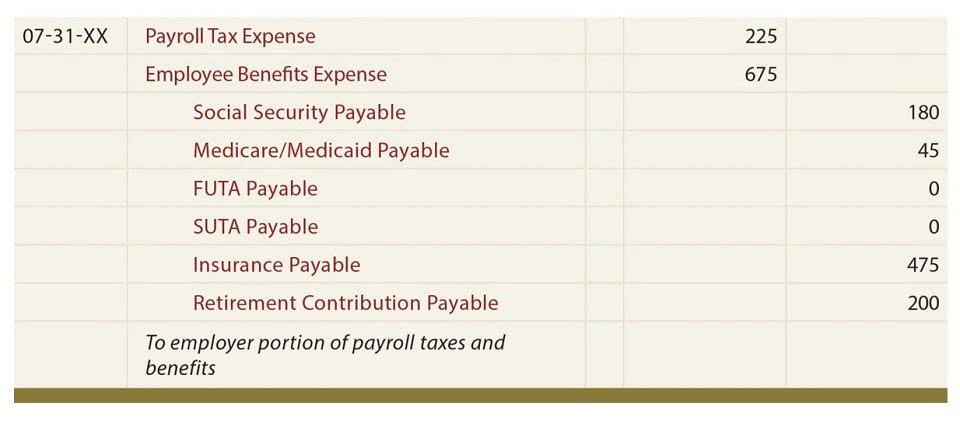2 2: Income and Expenses Business LibreTexts

Income is a crucial concept in economics, and it refers to the money that individuals or organizations receive from various sources. Understanding what income is and the different types of income can help individuals and organizations manage their finances more effectively. Expenses have a direct impact on the profitability of an organization, as higher expenses can reduce the net income or even result in a loss. Managing expenses effectively is essential for maintaining a expenses vs liabilities healthy bottom line and ensuring the long-term sustainability of a business. By controlling costs and optimizing resources, organizations can improve their financial performance and achieve their strategic objectives. In conclusion, the difference between expenses and income is a critical concept in accounting that must be understood to manage finances effectively.
Parts of an Income Statement
These expenses are optional and can be reduced or eliminated to free up funds for more essential expenses. Fixed expenses retained earnings balance sheet are recurring expenses that do not vary much from month to month. Examples of fixed expenses include rent, mortgage payments, car payments, and insurance premiums.
► Equity
Creditors are often more concerned about a company’s future cash flows than its past profitability. However, their research analysts can use an income statement to compare year-on-year and quarter-on-quarter performance. In conclusion, expenses and income are two critical accounting concepts used to track the financial health of organizations and individuals. Understanding the difference between expenses and income is essential for effective financial planning and management. The income statement vs profit and loss debate can be confusing, so let’s clear things up.
Capital Expenses
Yes, a salary is considered an expense and is reported as such on a company’s income statement. Business owners are not allowed to claim their personal, non-business expenses as business deductions. If the company uses the cash basis method, the accountant would record the expense when the company pays the invoice. If the company uses the accrual method, the accountant would record the expense when the company receives the service. Common expenses include payments to suppliers, employee wages, factory leases, and equipment depreciation.


Organizations and individuals must carefully manage expenses and income to achieve financial success. This requires a thorough understanding of expenses and income and effective expense and income management strategies. Expense and income are two key concepts in accounting that are essential to understand for anyone who wants to run a business or keep their personal finances in order. Both terms refer to money flow into and out of an organization or individual’s accounts. The difference between expenses and expenditures isn’t just accounting jargon—it directly impacts financial reporting, tax strategy, and cash flow management.
- Interest and dividends are forms of income that individuals can earn from their investments.
- Income and expenditure are two important concepts in economics, and while they are related, they have distinct differences that are essential to understand.
- One thing that income and expenditure have in common is that they both involve money.
- These include the net income realized from one-time nonbusiness activities, such as a company selling its old transportation van, unused land, or a subsidiary company.
- As your business grows and evolves, there are additional things to consider when preparing and analyzing income statements.

If there are fewer people willing and able to do a job than there are jobs, then that labor market is a sellers’ market, and workers can sell their labor at higher prices. Discretionary expenses Grocery Store Accounting are non-essential expenses that individuals or organizations can choose to spend money on. Examples of discretionary expenses include entertainment, travel, and luxury goods.
Different sources of income, such as sales revenue, interest income, and rental income, are aggregated to determine the total income. Accrual accounting is commonly used to measure income, as it provides a more accurate representation of the financial performance of an organization. While they are related, there are key differences between expenses and income, including their direction, nature, tax implications, and timing. Understanding these differences is critical for effective financial planning and management. Expenses and income are both critical components of financial planning and management.
- However, if expenses are cut too much, it could have a detrimental effect.
- Externally, they are most commonly used by investors and creditors.
- For governments, income comes from taxes, fees, and other sources, while expenditure includes various public services such as healthcare, education, and infrastructure.
- Income can also be classified into different categories, including operating income, non-operating income, investment income, and other income.
- Organizations and individuals must carefully manage expenses and income to achieve financial success.
- It could come for example, from your allowance, part-time job paycheck, or even birthday money from your relatives.
GAAP and Your Income Statement
There are a few more pointers I want to touch base on with expenses. Another option I am going to suggest when you are dealing with irregular income is to open a separate checking account (please, please, please check the fees at the bank you choose). Figure 2.5 “Budget Surplus” shows the choices created by a budget surplus.

